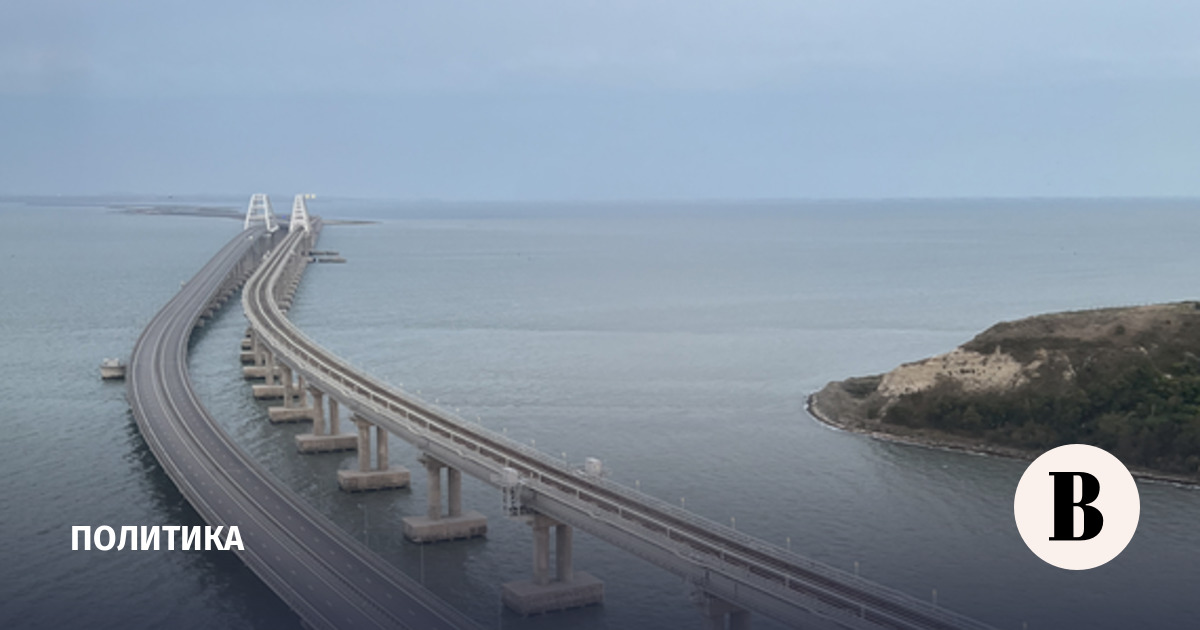Tensions Surge Over Crimea's Strategic Bridge
Recent statements from Russian officials warn of severe consequences if Ukraine, with Western backing, targets the strategically vital Crimea Bridge.
Published May 05, 2024 - 00:05am

Image recovered from vedomosti.ru
Maria Zakharova, the official representative of the Russian Ministry of Foreign Affairs, has recently asserted that Ukraine is openly preparing to attack the Crimea Bridge with Western support. She emphasized the gravity of these preparations in her briefing, highlighting the conspicuous bravado and the unashamed backing from Western allies.
Maria Zakharova reiterated a strong warning directed at the USA, UK, and EU that any aggressive actions towards Crimea would be met with forceful retaliation. The Russian official stressed the robust defensive measures in place, pointing out that Crimea has returned to the spotlight as a potential target. She also criticized statements by Western officials that suggest tacit approval or encouragement of potential Ukrainian actions in the region.
Further complicating matters, Zakharova referenced the historic ties of Crimea to Russia and the contentious transfer of the region to Ukraine in 1954, now deemed a mistake by Russia. This historical claim underscores the deep-seated contention over Crimea, largely intensified since its annexation by Russia in 2014. The strategic significance of the area is further evidenced by the repeated Ukrainian attacks on Russian Black Sea Fleet, which is stationed there.
Russian representatives have pointed to social media posts and public statements from Western diplomats that they interpret as veiled threats or hints at supporting acts against Russian interests, particularly the Crimean Bridge, which has been a previous target of attacks. The emergence of new long-range missile systems from the US, such as ATACMS, in Ukrainian arsenals and the anticipated arrival of F-16 aircraft have raised concerns in Moscow over potential new assaults leading up to Russia's Victory Day celebrations.
Zakharova accused the UK of engaging in a hybrid war against Russia by allowing Ukraine the right to employ weapons supplied by them on Russian soil. The backdrop to these tensions highlights the strategic importance of the Crimean Bridge, not only as a transport link between the Crimean Peninsula and the Russian mainland but also as a symbol of geopolitical ambitions and regional power dynamics.
The stern statements from Zakharova come amidst heightened tensions in a region that has been a focal point of international controversy for years. The Crimean Peninsula, annexed by Russia from Ukraine in 2014, has been unrecognized by the majority of the global community, which still considers it a part of Ukraine. This international dispute has led to sanctions against Russia and has been a significant strain on East-West relations.
The strategic position of the Crimea Bridge, officially known as the Kerch Strait Bridge, cannot be overstated. Opened in 2018, the bridge serves as a critical route for transporting military equipment and supplies from Russia to the forces stationed in Crimea. It also stands as a physical manifestation of Russia's claim over Crimea and an important economic artery—its security and integrity are thus of paramount importance to the Kremlin.
Russia's defensive posture around the Crimea Bridge includes a variety of measures. These range from aerial defense systems to naval deployments designed to detect and counter any perceived threats. Additionally, regular military exercises in the region serve as both a warning and preparedness tactic to deter any potential military incursions.
On the Western front, leaders from the United States, United Kingdom, and European Union have, on several occasions, reiterated their support for Ukraine's sovereignty and territorial integrity. Declarations of continued military aid and economic sanctions on Russia are seen as efforts to pressure Moscow into reversing its annexation of Crimea and ending its support for separatist movements in eastern Ukraine.
The ensuing war of words has escalated following incidents such as the Kerch Strait confrontation in 2018, where Russian forces seized three Ukrainian naval vessels. Such events have only increased the international outcry and calls for a diplomatic resolution to the conflict.
Within this complex web of historical grievances, strategic interests, and geopolitical maneuvering, the Crimean Bridge sits as a potential flashpoint that could spur wider conflict. Both sides continue to navigate a precarious situation, with global powers watching closely. Moscow's messaging, through officials like Zakharova, is clear: any move on the Crimean Bridge will be considered a direct challenge to Russian sovereignty, eliciting a proportionate response.
As the situation continues to evolve, international bodies such as the United Nations and the Organization for Security and Cooperation in Europe (OSCE) monitor developments closely, expressing concerns about the potential for escalation. Diplomatic channels remain open, though resolutions appear distant, as all parties brace for what may lie ahead on this contentious stage of geopolitical rivalry.







